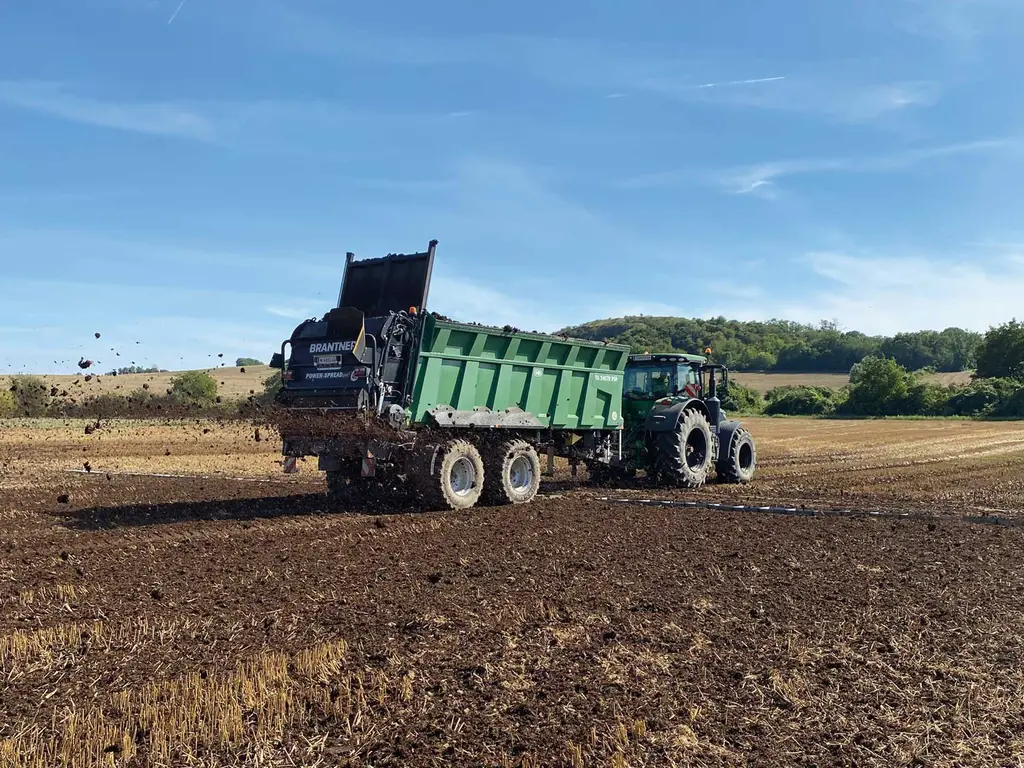Download print version
Test report 7241
The approval
A test mark “DLG-APPROVED for individual criteria” is awarded for agricultural products which have successfully fulfilled a scope-reduced usability testing conducted by DLG according to independent and recognised evaluation criteria. The test is intended to highlight particular innovations and key criteria of the test object. The test may contain criteria from the DLG test scope for overall tests, or focus on other value-determining characteristics and properties of the test subject. The minimum requirements, test conditions and procedures as well as the valuation bases of the test results will be specified in consultation with an expert group of DLG. They correspond to the recognized rules of technology, as well as scientific and agricultural knowledge and requirements. The successful testing is concluded with the publication of a test report, as well as the awarding of the test mark which is valid for five years from the date of awarding.
The DLG-APPROVED test “Ammonia resistance” includes technical examinations in the laboratory and in the NH3 test chamber of the DLG Test Center Technology and Farm Inputs in Gross-Umstadt. Brand-new samples of all materials used were tested. The testing was based on the DLG test specification for the study of ammonia resistance, version 2.4/2021. Other criteria were not tested.
Assessment in brief
The brand-new materials are tested regarding their ammonia resistance according to DLG-APPROVED test methods. The tested materials have met the requirements regarding the examined criteria.
Table 1: Summary of test results
| Dlg Quality profile | Test result | Evaluation* | ||
|---|---|---|---|---|
| Single Criteria Resistance to Ammonia | ||||
| Component | – TG PC Serie | installation distribution board | resistant | ■ ■ ■ ■ ■ |
| – SNI | stepped nipple | resistant | ■ ■ ■ ■ ■ | |
| – AST | attachment spout | resistant | ■ ■ ■ ■ ■ | |
| – BST | ventilation spout | resistant | ■ ■ ■ ■ ■ | |
| – DMS | double membrane spout | resistant | ■ ■ ■ ■ ■ | |
| – DMS/sw | double membrane spout | resistant | ■ ■ ■ ■ ■ | |
| insulating plug | resistant | ■ ■ ■ ■ ■ | ||
* The DLG test framework provides the following options in its evaluation schemes:
■ ■ ■ or better = meets, exceeds or clearly exceeds the specified DLG standard, ■ ■ = meets the legal requirements for marketability, ■ = failed
The product
Description and specifications
The materials tested here are components of the empty housing of the TG PC series (TG PC 88 to TG PC 3023). The empty case is also used in animal houses and can thus be exposed to elevated levels of ammonia in the housing environment.
Table 2: Specifications (manufacturer information)
| Empty housing series TG PC | |
|---|---|
| Rated voltage | 690 V |
| Length | 84 - 302 mm |
| Width | 84 - 232 mm |
| Height | 55 - 110 mm |
| Accessories | Dimensions | |
|---|---|---|
| SNI | stepped nipple | Ø 30 mm x 20 mm |
| AST | attachment spout | Ø 30 mm x 23 mm |
| BST | ventilation spout | Ø 25,5 mm x 13 mm |
| DMS | double membrane spout | Ø 25,5 mm x 14 mm |
| DMS/sw | double membrane spout | Ø 30 mm x 15 mm |
| insulating plug | Ø 14 mm x 5 mm |
The method
Ammonia resistance
The ammonia resistance of the materials was determined by a laboratory testing according to the DLG test standard for agricultural use. With the DLG laboratory test for NH3 resistance, it is possible to determine the ability of the test sample to withstand the effects of animal house air over a usage period of about 10 years.
The test was carried out in a gassing chamber under the following climate conditions:
| Duration of the test | 1500 h |
| Air temperature | 70 °C |
| Relative humidity | 70 % |
| Ammonia concentration | 750 ppm |
For assessing the NH3 resistance, the test samples were examined visually, gravimetrically and through a measurement of the material thickness before and after the climate testing. The measurement of shore hardness only yielded relevant and tangible results for the accessory parts. The materials were tested on the basis of at least two samples.
The test results in detail
Ammonia resistance
The transparent cover showed visual deviations during the test: it lost its shiny appearance through the NH3 exposure. The surface became dull and appeared fogged. However, this does not restrict its functionality as long as there is no need for an optically flawless surface. The cover is therefore only classified as having a limited resistance. However, the acceleration of the test is very high, to be able to give a statement about an application period which is as long as possible.
Because the deviations do not affect the functionality of the component, and a significantly lower ammonia exposure occurs in practice, the overall empty enclosure can still be fundamentally assessed as suitable.
All other deviations of the measured parameters were within the measurement uncertainty or the evaluation thresholds. Thus, it can be assumed that the materials are able to sufficiently withstand a NH3-containing atmosphere, as it would be the case for exhaust air in pig houses for example.
Table 3: Change through the NH3 exposure – empty housing
| Component | Visual assessment | Weight | Thickness | Evaluation |
|---|---|---|---|---|
| Box grey with screw | no change | 0.1 % | 3.1 % | resistant |
| Box white with screw | no change | 0.1 % | < 3.0 % | resistant |
| Cover grey with seal | no change | 0.1 % | 3.0 % | resistant |
| Cover white with seal | no change | 0.1 % | < 3.0 % | resistant |
| Cover transparent | dull finish, fogged | 0.3 % | < 1.0 % | conditionally resistant |
| Empty housing series TG PC | resistant |
Table 4: Change through the NH3 exposure – accessories
| Accessories | Visual assessment | Weight | Shore hardness | Evaluation | |
|---|---|---|---|---|---|
| SNI | stepped nipple | no change | < 3,0 % | < 5,0 % | resistant |
| AST | attachment spout | no change | < 3,0 % | < 5,0 % | resistant |
| BST | ventilation spout | no change | < 3,0 % | < 5,0 % | resistant |
| DMS | double membrane spout | no change | < 3,0 % | < 5,0 % | resistant |
| DMS/sw | double membrane spout | no change | < 3,0 % | + 6,5 % | resistant |
| insulating plug | no change | < 3,0 % | < 5,0 % | resistant |
The brand-new materials were tested regarding their ammonia resistance in the laboratory and in the NH3 test chamber at DLG in Gross-Umstadt according to DLG-APPROVED test methods. All tested materials have met the requirements regarding the examined criteria. Thus, the entire component is to be classified as resistant to ammonia-containing air.
Manufacturer and applicant
Günther Spelsberg GmbH & Co. KG
Im Gewerbepark 1
D-58579 Schalksmühle
Contact
Telephone+49 (0)2355 892-0
Telefax +49 (0)2355 892-299
info@spelsberg.de
www.spelsberg.de
Test implementation
DLG TestService GmbH, Gross-Umstadt location
The tests are conducted on behalf of DLG e.V.
Department
Agriculture
Division head
Dr. Ulrich Rubenschuh
DLG test scope
DLG test specification “Ammonia resistance”, for light systems and stable equipments (version 2.4/2021)
Test engineer
Dipl.-Ing. (FH) Tommy Pfeifer *
* Author
Contact us
DLG TestService GmbH - Groß-Umstadt location • Max-Eyth-Weg 1 • 64823 Groß-Umstadt • Tel: +49 69 24 788-600 • tech@DLG.org













